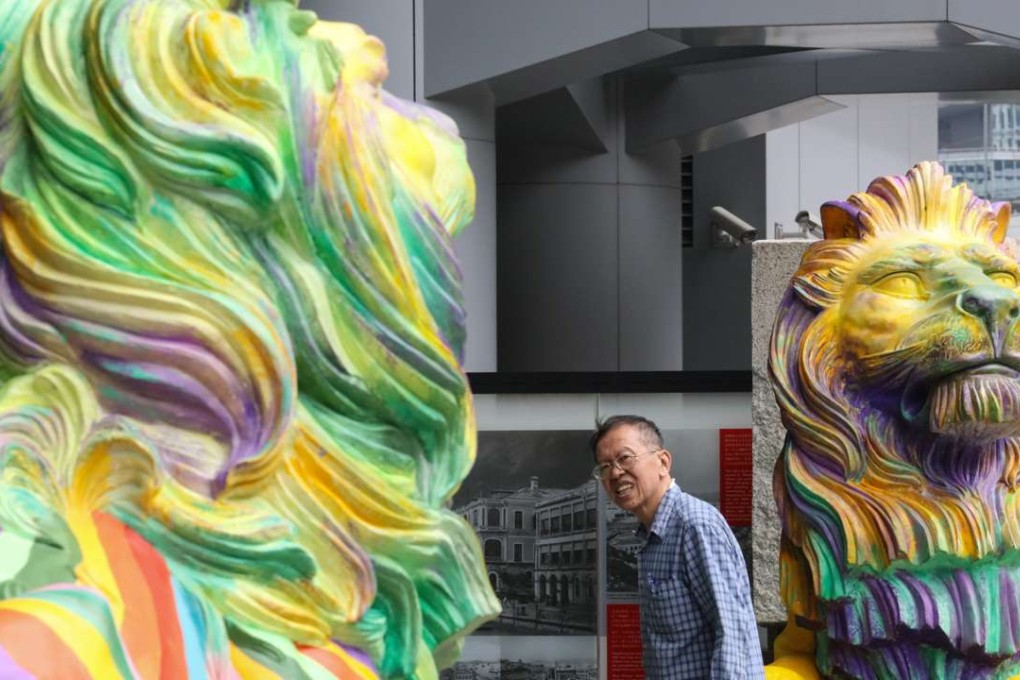HSBC’s pro-LGBT rainbow lions draw ire of Hong Kong family groups
Activists claim statues in support of sexual minorities offend customers and shareholders

Activists have accused HSBC of trampling on the family values of Hongkongers by decking two lion statues in rainbow colours at its Central headquarters in support of sexual minorities.
The Family School SODO Concern Group, Parents for the Family Association, Overturning LGBT Agenda and Next Generation Orientation have launched a joint online signature campaign expressing disapproval at the “disgusting” display, which they claimed had offended both customers and shareholders.
Watch: HSBC’s rainbow lions cause storm in Hong Kong
By 9pm on Monday night they had collected 1,800 signatures and they vowed to protest in front of the lions if they collected 3,000. On HSBC Hong Kong’s Facebook page there were mixed views, with some threatening to close their accounts and others supporting the bank’s inclusive policy.
HSBC kicked off the “Celebrate Pride, Celebrate Unity” campaign late last month by displaying replicas in rainbow colours of Stephen and Stitt, the bank’s iconic lions, in front of its main building.

The statues, designed by local LGBT artist Michael Lam and on show until the end of December, represent pride and unity in diversity, with Stephen painted in stripes and Stitt in circles. Throughout the bank’s history, the lions have stood for courage and prosperity.